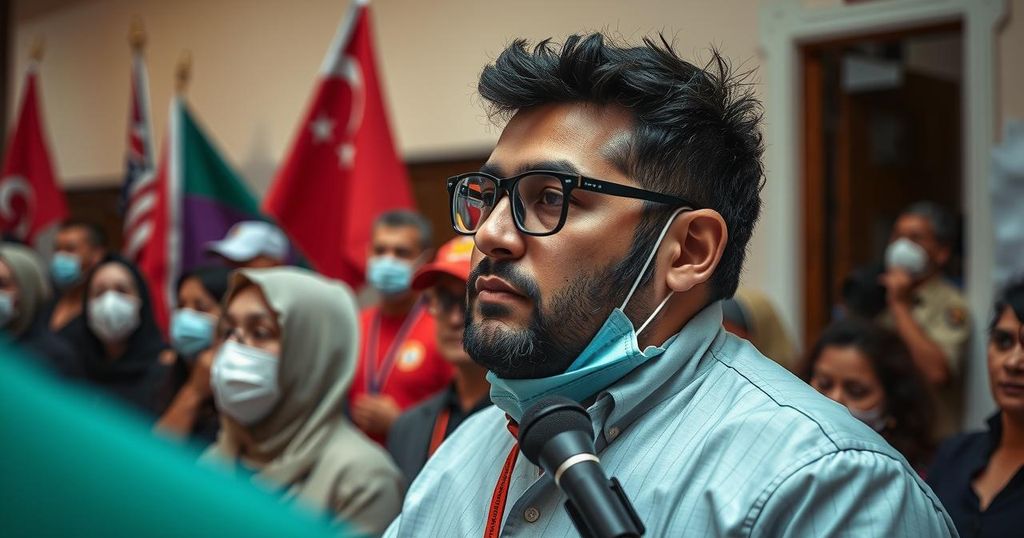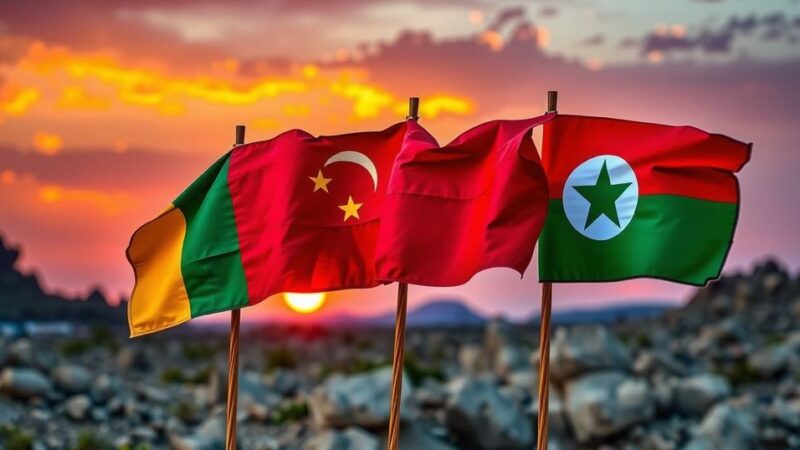Said Ait Mahdi, a Moroccan activist, received a three-month prison sentence and a fine of over $1,000 for protesting the government’s earthquake response. The 6.8-magnitude earthquake in September 2023 severely impacted the Al Haouz region, prompting widespread frustration with recovery efforts. Human rights advocates condemned Ait Mahdi’s sentencing as arbitrary and retaliatory, highlighting ongoing regional disparities exacerbated by the disaster.
MARRAKECH, Morocco (AP) — Said Ait Mahdi, a prominent Moroccan activist, has been sentenced to three months in prison following his leadership in protests criticizing the government’s response to the recent earthquake. His legal representation, Isaac Charia, confirmed that Ait Mahdi was also fined over $1,000 on charges of defamation, assault, and inciting an unauthorized demonstration. The earthquake, which struck the Al Haouz region in September 2023, resulted in nearly 3,000 fatalities and widespread devastation, severely impacting the local infrastructure.
Ait Mahdi’s case marks a troubling trend, as he is the first activist from the affected area to receive such a penal sentence. Protests have continued in various towns, with participants accusing officials of mishandling the recovery process, leaving many displaced individuals residing in temporary shelters. Charia remarked that, while the charges Ait Mahdi faced often lead to one year in prison for other defendants, the three-month sentence was less severe than anticipated.
Human rights organizations in Morocco have condemned Ait Mahdi’s sentencing as arbitrary, asserting that it constitutes a direct retaliatory act against his advocacy for the earthquake-affected community. The Moroccan Association for Human Rights issued a statement condemning the government’s actions, while a coalition of NGOs and left-leaning political factions claimed these charges serve to mask significant human rights violations stemming from the government’s inadequate response.
The earthquake has exacerbated longstanding regional disparities in Morocco, particularly affecting areas dominated by indigenous populations that were already facing infrastructural deficits. Government estimates indicate that more than 60,000 homes and at least 585 schools were damaged, prompting the Moroccan government to pledge over $11.5 billion for recovery efforts over the next five years. Local activist groups have also mobilized in larger cities; for instance, the Civil Coalition of the Mountain recently demonstrated in Rabat, demanding quicker reconstruction efforts sixteen months post-earthquake. Hundreds of supporters rallied outside the Marrakech court during Ait Mahdi’s trial, calling for his release and expressing solidarity with earthquake victims.
The context surrounding Ait Mahdi’s sentencing stems from the devastating 6.8-magnitude earthquake that struck Morocco in September 2023, causing catastrophic damage in the Al Haouz region. The natural disaster led to the loss of nearly 3,000 lives and disrupted countless infrastructure, including homes, schools, and healthcare facilities. As recovery efforts progressed slowly, local communities grew increasingly frustrated with the perceived incompetence of government officials in providing adequate disaster response. Activists, led by Ait Mahdi, began to raise their voices against the government’s inadequate response, highlighting the severe inequalities faced by marginalized groups in the region. This backdrop of social unrest and demands for justice highlights the critical issues of accountability and human rights that have become focal points of contention in Morocco.
In conclusion, the sentencing of Said Ait Mahdi exemplifies the ongoing struggle for civil liberties and equitable disaster response in Morocco. As protests continue to mount against government actions perceived as repressive, the situation calls for greater attention to human rights and the urgency of rectifying the injustices faced by earthquake victims. It remains imperative for the Moroccan government to address the disparities highlighted by activists and to ensure a just recovery process for all affected communities.
Original Source: www.wral.com






